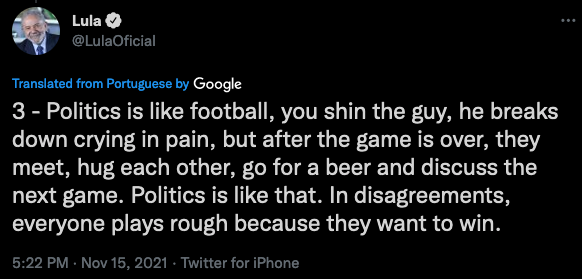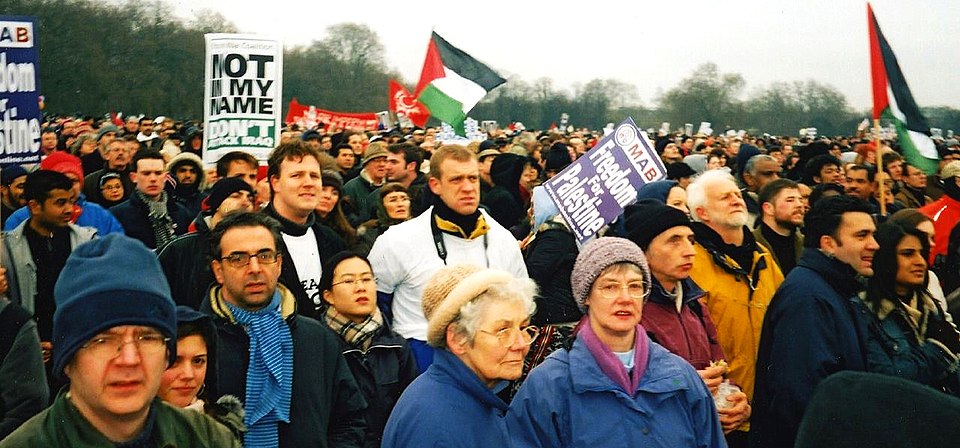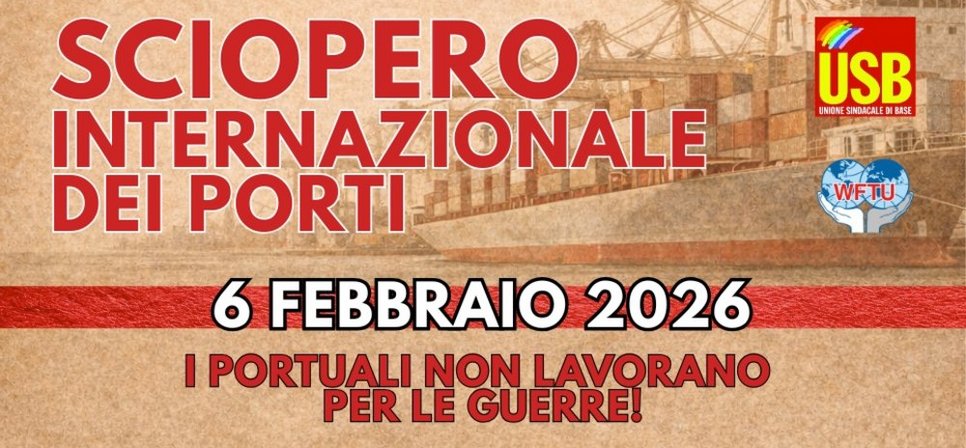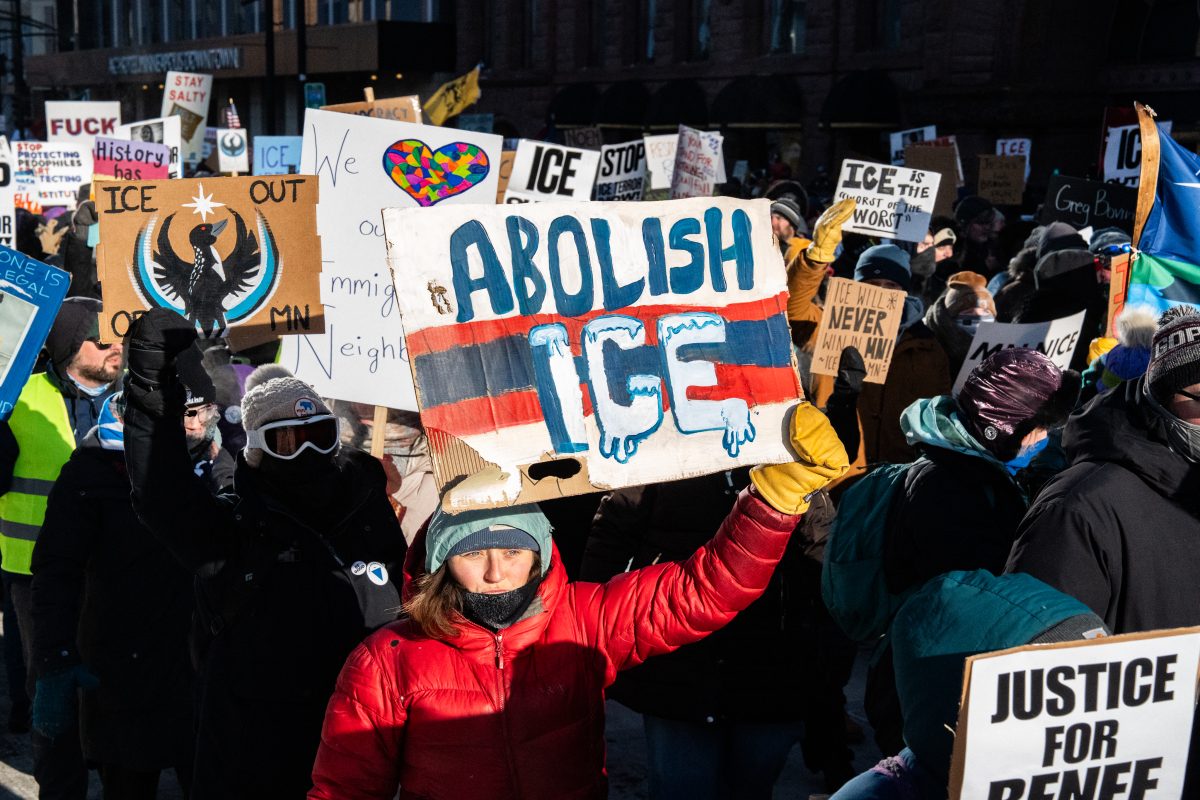Brazil will hold presidential elections on October 2nd, 2022, and Luiz Inacio Lula is leading the polls against the neoliberal fascist candidate Bolsonaro.
During Lula’s presidency (2003-2010) with the Workers Party, Brazil made important advances in social policies like the Bolsa Família Program, healthcare, access to education, infrastructure, famine eradication, strengthening of the minimum wage, and increasing in workers’ rights.
In 2016, the presidency was taken by Dilma Rousseff’s vice-president Michel Temer, who actively participated in the coup. Since then, we have been observing an offensive from the capitalists, pushing counter reforms at a fast pace and attacking the Brazilian working class.
When discussing Lula’s politics, it is important to not oversimplify them as purely class conciliation. That would be lazy and unfair, instead, the point is to bring a critical perspective to the Workers Party alliances and to name where the power lies under their politics.
Brazilian media, car wash operation and Anti workers Party effect
The Workers Party (PT) and Lula have gone through a systematic attack by the Brazilian communication oligopoly, which has played a key role in building the Anti-PT feeling in the country.
The car wash operation had extensive media coverage and ended up putting Lula in prison just before the elections he would win. The “Car wash” served also as an instrument for the coup against Dilma Rousseff (PT). The operation was in tune with the aspirations of the bourgeoisie, carrying a moralist concept built on top of the anti-corruption agenda. The judge Sergio Moro, who condemned Lula to prison, later became the minister of justice in Bolsonaro’s government and he now wants to run for president.
In a leaked message, Deltan Dallagnol, the chief of the operation task force and the prosecutor, referred to Lula’s prison as “a gift from the CIA”.
It was not only the national bourgeoisie that had its interests at stake, but also US imperialist desire to destabilize the Brazilian congress and economy.
Shortly after Petrobras (a big Brazilian oil state company) discovered huge oil reserves on the pre-salt layer, US funds started to push for privatization, underpriced exploration concessions, and with Michel Temer, the oil price started to be at parity with the dollar, increasing significantly the gasoline costs for the population while increasing the profit for the shareholders.
As a contrast, Dilma Rousseff had previously passed a law to allocate 75% of the pre-salt royalties plus 50% of the social fund coming from these oil reserves to the education budget.
When it comes to sovereignty, the US also managed to push for an agreement that was approved by the Congress, to legislate over decisions on the Alcantara Base, a strategic Brazilian air force base on the north Atlantic coast of Brazil.
It is important to establish these points and clarify that the Workers’ Party program is not the same as the bourgeois program.
Where is politics being fought to respond to such a brutal offensive against the working class?
One of the highlights of the Brazilian conjuncture is how naive and non-materialistic it is to think that politics should happen only inside of institutions. The Workers Party, which had long built a big, but only electoral basis, had no power to call for the masses to defend the historical achievements of the working class.
PT also didn’t have the strength to take over the media and to announce that a coup was in progress. Shifting public opinion with the truth would have been an important step. With the Workers’ Party weakened, the coup came along with the bankruptcy of liberal democracy.
The idea that nobody could predict the rise of fascism in Brazil, or that the political class and the institutions were not mature enough to handle fascism escalation must be rejected.
The Brazilian republic’s history is based on oppression, slavery, economic dependency, militarization, and genocide of the poor and black population. The current liberal democracy is consistently failing to solve those problems, and in fact it is just working exactly as it should be on its own realism.
Neoliberalism has delivered social inequality, growth in the imprisonment of black people, a militarized and brutal police, famine, unemployment, and always the possibility of unleashing fascism whenever any progress is made by the workers.
It is important to highlight that the black population massacre was not different during the 3 presidential mandates of the Workers Party (Lula-Dilma). According to Infopen, the population in prison has almost doubled from 2005 to 2016, whereas 64% of the people in jail are black. In some states, like Acre, this number goes up to 95%, Amapá 91%, Bahia 89%. No significant measures were taken over the brutal interventions in the favelas, and there was no effective action to push for the dismantling of the military police.
Many instruments of power were not confronted by the Workers Party like media regulation, political reform, tax reform, and agrarian reform. It seems the importance of effectively building power together with the people and not through closed doors agreements has been long forgotten. The coup and the imprisonment of Lula show that being in government and being in power are different things, and making agreements with the rich has a high cost.
Since Lula is free and eligible, the latest polls have shown that 40% of the Brazilians would vote for him. The political circumstances require the creation of a left antifascist and anti neoliberal front. Instead it seems the Workers Party is once more moving towards problematic alliances. The alliances include from religious fundamentalists all the way to figures like Geraldo Alckmin, who was the governor of São Paulo and is well known for privatizations and precarization of public infrastructure, building a police state and conducting brutal operations such as the Pinheirinhos massacre.
Geraldo Alckmin is politically dead; he has no strength, no popularity, and he is a figure who always represents the interests of the oppressors. Why the left needs to clean his way and give his program a chair is a question that needs to be answered. It makes no tactical sense and no strategic motivation.
The point here is not necessarily whether this specific alliance will proceed or not, but what Lula wants to say and to whom he wants to speak to by bringing this discussion to the media.
To the dominant class, it’s a message of moderation, to the people, it’s a message of depoliticization and castration of popular power by saying that if we want to overcome Bolsonaro in the elections, we will need to bend ideologically and programatically; if not, fascism will win.
The Workers Party politics of orbiting around elections also showed up late when the radical left was organized and taking the streets to demand vaccines, to call for national strikes and food for the poor in the most critical moment of the pandemic. The Brazilian communist party (PCB) has pushed for national demonstrations and interventions demanding the fall of Bolsonaro, PT has hesitated to join initially and to strengthen the mass articulation.
When the intensification of capitalism’s contradictions is at its peak in Brazil, Lula uses the following public language about Geraldo Alckmin:

Figures like Geraldo Alckmin need to be seen as the enemies of the working class, as it needs their political program.
To overthrow the austerity program that imposes a limit on public investment, to reverse the counter reform of social security and to give back the workers’ rights, it is absolutely necessary to strengthen the left, to effectively work towards a left unity with popular participation confronting the rich and amplifying the class struggle.
Neoliberalism brought Brazil to such a critical situation that it seems reasonable to the left to issue a blank cheque in order to win the elections against Bolsonaro.
There must be a commitment to:
- Reversing the budget ceiling;
- Reversing the labor and pension counter reform;
- Implementing agrarian reform;
- Reversing privatizations in the energy and oil sectors, as well as in the state-owned postal service, airports, mining, and transportation;
- Media regulation.
No radicality is expected from Lula and the limitations are clear. Nevertheless, it must be said, the moment calls for a left unity that doesn’t leave behind the confrontation of the ruling class.
The roots of exploitation, violence and genocide politics need to be exposed in massive campaigns of agitation. The bourgeoisie and Bolsonaro must be accountable for more than 650 thousand COVID-19 deaths, unemployment, famine and lack of housing.
No alliances with the oppressors!




